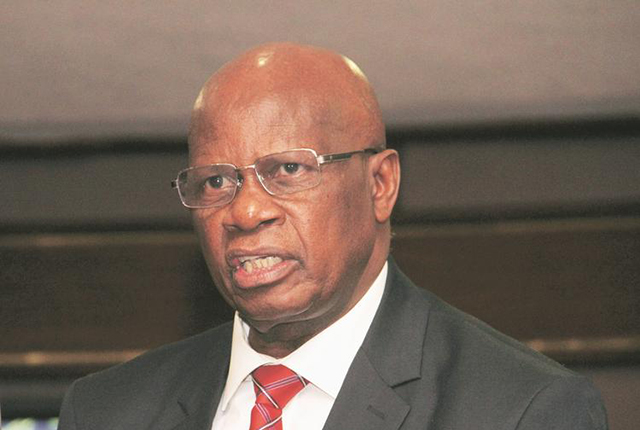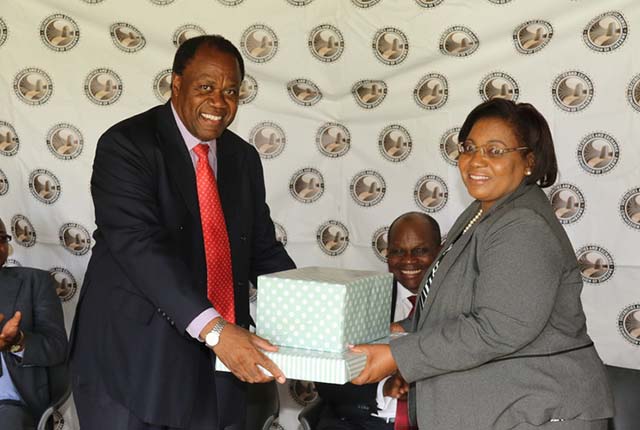Govt to cut wage bill by 55pc


Minister Chinamasa
Enacy Mapakame Business Reporter
GOVERNMENT says it would have reduced the civil service wage bill to between 50 and 55 percent of total expenditure by 2020.
Speaking at The Herald Business and Confederation of Zimbabwe Industries post budget breakfast meeting on Friday, Finance and Economic Development Minister Patrick Chinamasa said streamlining the civil service to reduce the wage bill was a process that could not be achieved overnight.
In light of this, the Treasury had engaged other ministries to ascertain the number of employees, levels of over-staffing, redundancy and any possible duplication of roles within the civil service and came up with recommendations to streamline the public service.
He said one of the methods of streamlining the civil service would include cutting salaries, allowances and removal of some benefits.
But this, he said, was a difficult task, not only for Government but for any other company.
“We are now beginning to make some savings. By 2019 or 2020, we should be on target to reduce the wage bill to between 50 and 55 percent of the country’s total expenditure,” he said.
“Another option would be to broaden the national cake. By broadening the national cake you increase revenues into the fiscus and wages will naturally then take their proper proportion within the context of production,” said Minister Chinamasa.
Government’s wage bill takes up an estimated 90 percent of the revenue collected.
According to the 2017 National Budget presented last week, total expenditures are projected at $4,1 billion. Of the expenditure, the wage bill will take up $3 billion while capital expenditure amounts to $520 million, which is 3,6 percent of the gross domestic product (GDP).
There have also been calls for Government to restructure parastatals in line with prevailing economic conditions as well as based on productivity.
But Minister Chinamasa underscored the need to analyse each parastatal at a time, do a thorough research on it as well as audit.
“That is what we did with IDC (Industrial Development Corporation). We took a decision in Cabinet on the way forward; it will dispose of some of its subsidiaries and revert it to a venture capitalist function.
“In the case of Hwange, we are also in the process of taking very decisive measures, we agreed that it must restructure, it has about 2 500 employees when it needs only about 800,” he said.
Early this year, Hwange embarked on a restructuring programme that resulted in salary cuts for executives while other top management posts were struck off as part of measures to reduce the wage bill.
While retrenchments may not be the best solution under the current economic conditions where companies cannot afford retrenchment packages, Minister Chinamasa said a full examination of an institution will also help ascertain if the company is overstaffed.
“The major problem with restructuring, not just in Government institutions but private sector too, is what to do with the laid off workers.
“They will want retrenchment packages at a time companies do not even have money for that,” he said.










Comments